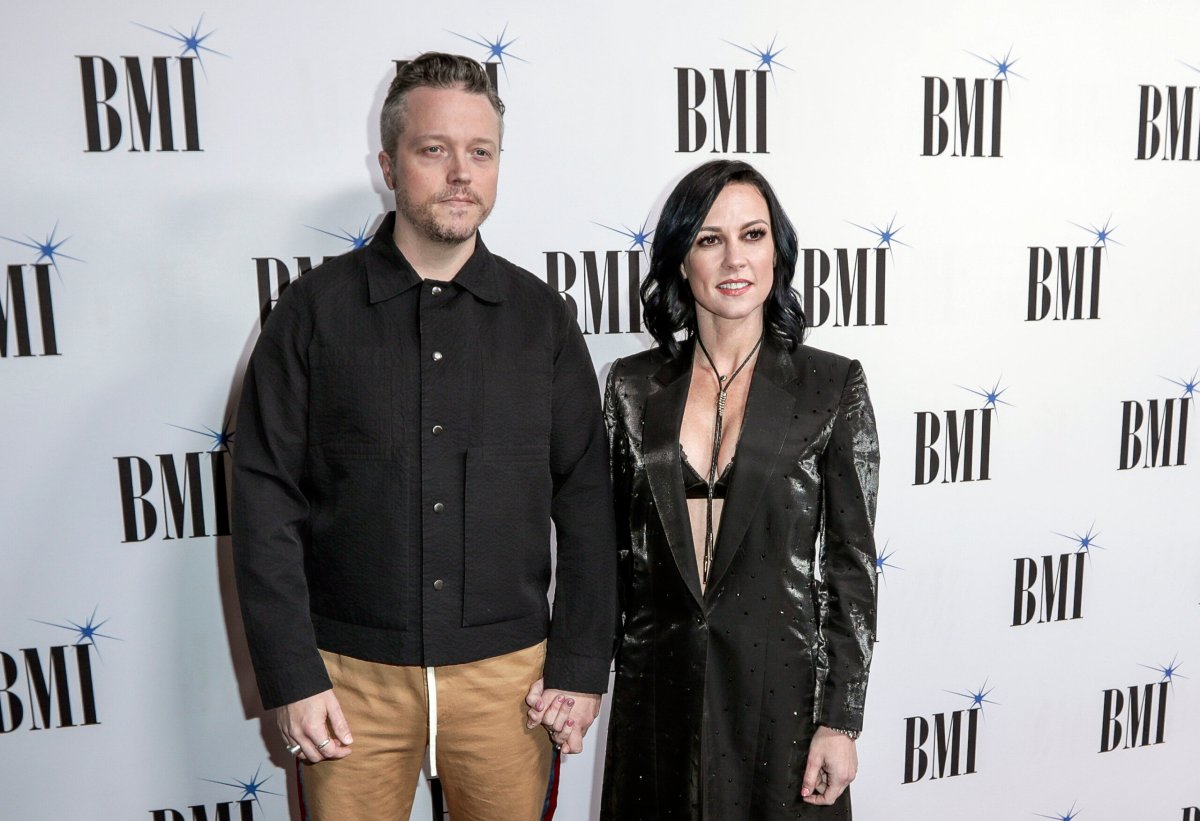NEW YORK (AP) — If Jason Isbell is keeping many more secrets, it’s hard to imagine what they might be.
The singer-songwriter and his wife, fellow musician Amanda Shires, open their lives for public consumption in a manner unusual even to artists who mine their own world for material. Through interviews and a film out this spring, they have documented a rough patch in their marriage and how Isbell’s drinking almost destroyed his career before recovery redeemed it.
The sharing gets so raw that when Shires reveals that she made Isbell take a test for sexually transmitted diseases before she slept with him, you’re tempted to shout, “too much information!”
To Isbell, it’s a necessary part of the job.
“If I’m holding back part of myself from the audience, I’d be within my right to do that,” he said. “But I don’t think the connection would be as strong. For me, it’s more important to connect with people on an honest level than it is for me to control my image.”
Isbell, 44, has been one of rock’s top songwriters since his first post-drinking album, “Southeastern,” came out in 2013. His upcoming disc due June 9, “Weathervanes,” will only cement that status.
Shires, a formidable talent in her own right and founding member of The Highwomen, also plays violin in Isbell’s band, the 400 Unit. Director Sam Jones’ film, “Running With Our Eyes Closed,” shows tension building in the marriage largely through Isbell unsuccessfully dealing with the pressure of making his 2020 disc, “Reunions.” Shires briefly moved out of their home.
The storm gathers through furtive glances, eye rolls and the uncomfortable expressions of other musicians.
In one excruciating scene, Shires reads an email she sent to her husband about the possibility of marriage counseling, her lower lip trembling as she fights back tears.
Her 2022 song, “Fault Lines,” deals bluntly with marital troubles. “You could say it’s all my fault we just couldn’t get along,” she sings. “And if anyone asks, I’ll say what’s true, and really, it’s ‘I don’t know.’”
Honesty is equally important to both of them, although societal pressures make going public with it tougher on Shires, Isbell said.
“We could sell millions of records and have all the fans in the world, but it wouldn’t be enough if we didn’t feel like we were telling people the truth, and that’s not easy,” he said. “That’s why most people don’t aim for that…That’s the difference between art and entertainment, and I think it’s very important to us to feel like we’re making art and not just distracting people.”
Filmmaker Jones said Isbell agreed to make the documentary with no pre-conditions — and held to it. They became part of the process through the pandemic, when the couple filmed scenes at home with their daughter themselves.
Jones is convinced that “the artists that we love the most are the ones that we feel like we know the most,” something his experience making a documentary with Jeff Tweedy and Wilco taught him.
“I firmly believe that people want to see other people being human and vulnerable and weak and making mistakes, and it makes them feel more connected and bonded to the art,” he said.
The film deals in some detail with Isbell being fired from the band Drive-By Truckers because of his drinking. Thanks to Isbell’s manager, who had squirreled away footage in case her client had a relapse, it includes clips from Isbell’s last, unhinged performance before going to rehab.
“It wasn’t easy to watch,” Isbell said. “But at the same time, I knew. I remembered. There was a reason why I quit. There was a reason why I can’t sit down with my wife and have a wine over dinner. I would love to do that, but I can’t.”
Having such a document out in public, coupled with how he has dealt with the experience in song (“It gets easier but it never gets easy,” he sang on the “Reunions” disc), adds layers of accountability.
“If I did ever go back to drinking right now I would feel I let a lot of people down,” he said.
Going back further, Jones shows how Isbell dealt with the unhappiness of a home life with fighting parents by retreating to his room and loudly playing guitar. The story also illuminates the lyrics to his song “Dreamsicle.”
A consequence of the forthrightness is that one of the first things a listener wonders upon hearing his new song, “Death Wish,” is whether he’s writing about Shires. The song deals with loving someone who has mental illness. “Did you ever catch her climbing on the rooftop, higher than a kite, dead of winter in a tank top?” he sings.
Partly it is, he said. And it’s also about other people he’s known. He takes a songwriter’s liberties to develop a character.
Several of the new songs deal with people fighting through adversity — a working man who becomes addicted to painkillers, the fear brought on by a school shooting, the scourge of loneliness and miscommunication with someone “raised to be a strong and silent Southern man.” In the deeply personal “White Beretta,” Isbell sings of accompanying a former girlfriend as she gets an abortion.
The album is not without hope, though.
“There’s hope in telling people, ‘I have felt this way, too,’ even if the way you feel is isolated or sad or afraid,” he said. “If you’re able to do it in a way that makes people think, ‘I’m not alone in this feeling,’ I think that in itself offers hope.”
The process of songwriting isn’t getting any easier for him. Isbell relates to the famous description of writing by late sportswriter Red Smith, who said, “all you have to do is sit down at the typewriter, cut open a vein, and bleed.”
Isbell adds a songwriter’s requirement: “your blood better rhyme.”
“I think my standards have changed over time,” he said. “The more I write and the more I listen, the more I try to avoid things I’ve heard before, and that takes me a little more time every time I sit down to do it.”














